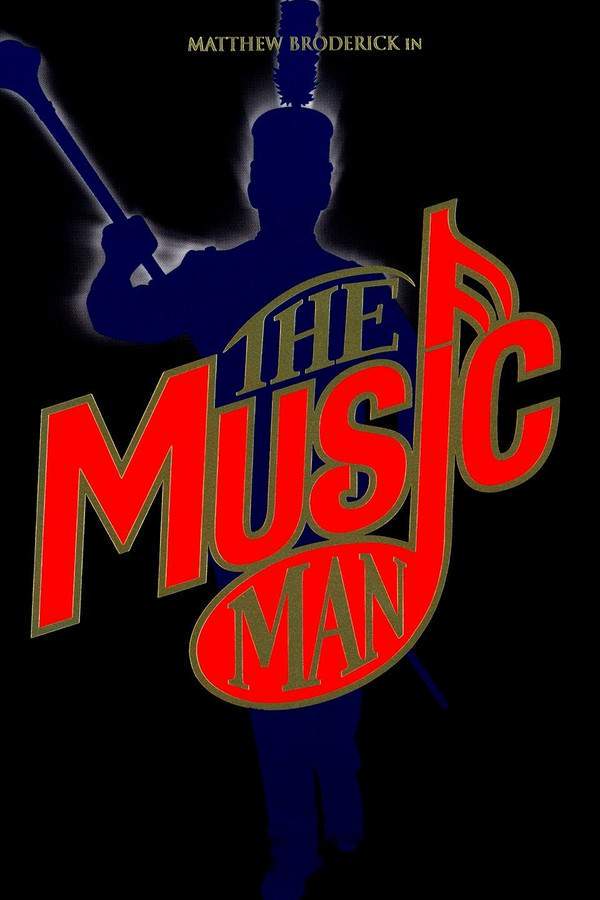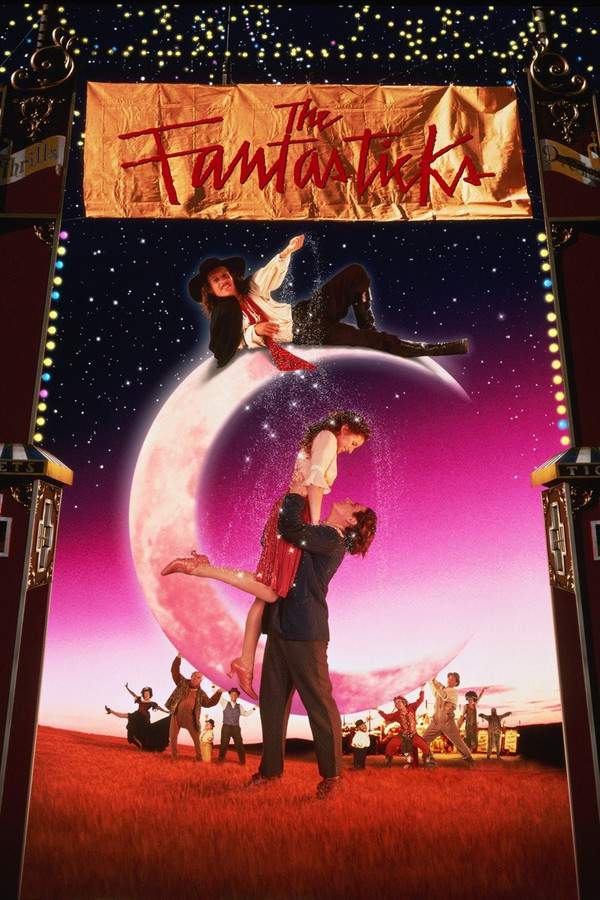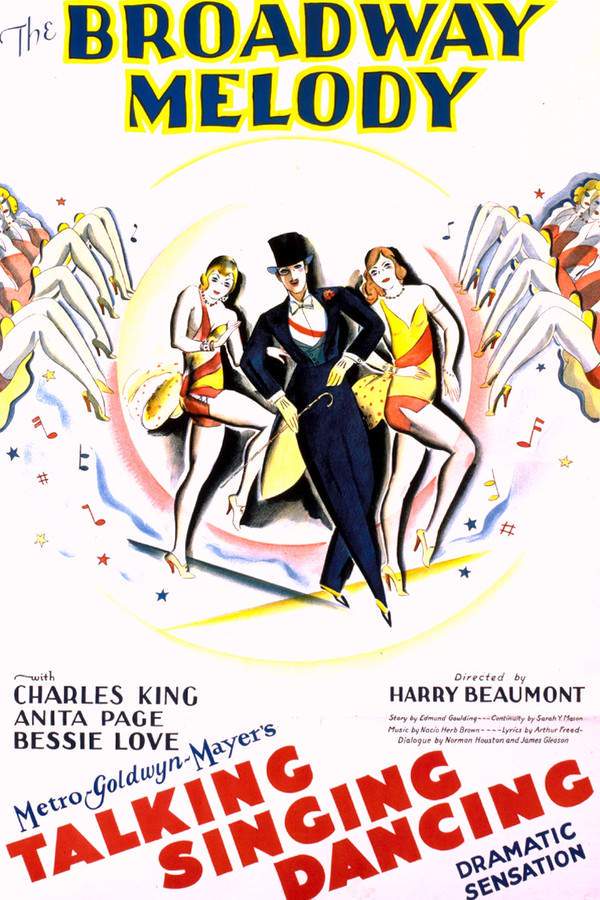
The Music Man 1962
Directed by

Morton DaCosta
Made by

Warner Bros.
Test your knowledge of The Music Man with our quiz!
The Music Man Plot Summary
Read the complete plot summary and ending explained for The Music Man (1962). From turning points to emotional moments, uncover what really happened and why it matters.
The film begins in 1912, showcasing a group of traveling salesmen on a train, who express their despair over societal changes that threaten their livelihoods. They disdain the notorious conman, Professor Harold Hill, notorious for selling musical instruments and uniforms to children while promising to form a band, only to vanish shortly after. As one salesman remarks, “He don’t know one note from another!” Just before the train leaves River City, Iowa, Hill reveals himself, making a hasty escape.
Upon arriving in the quaint Midwestern town, filled with earnest and unpretentious residents, Hill is welcomed with open arms, much to his delight. He reunites with an old acquaintance, Marcellus Washburn, who now lives a respectable life in River City. Their conversation turns nostalgic as they reminisce about their past exploits in selling. Marcellus warns Hill that the town librarian, Marian Paroo, is too astute for his schemes, turning Hill’s plans into both a professional and romantic challenge.
The ineffectual mayor’s wife, Eulalie Mackechnie Shinn, makes her appearance soon after, criticizing Marian for recommending what she deems inappropriate literature for her daughter. Meanwhile, Hill cleverly identifies the installation of a pool table as his battleground, rallying the townsfolk with the catchy tune, “Ya got trouble / right here in River City.”
Marian, initially aloof, becomes subjected to Hill’s affections as he attempts to charm her with absurd pickup lines, which she swiftly rebuffs. Their encounters intensify as he tries to involve her in his dubious plans while simultaneously winning over the townspeople. Young Winthrop Paroo (played by Ron Howard), Marian’s introverted brother who struggles with his lisp, finds newfound confidence with Hill’s encouragement.
Love blossoms amidst the Fourth of July celebrations, where Hill’s ambitions for a youth band are met with mixed reactions. As he fumbles through town, singing and dancing his way into the hearts of the locals, Marian’s skepticism begins to wane, especially when she sees the positive changes in Winthrop inspired by Hill.
Tension mounts when the town’s moral guardians, consisting of the school board and the mayor’s wife, demand to see Hill’s credentials, leading to a series of chaotic musical numbers. His charm and quick thinking often save him from being exposed; however, as rumors circulate about his shady past, the stakes rise.
At a sociable gathering, amid an array of humorous antics and romantic tension, Hill’s affection for Marian becomes evident. Their duet, “Till There Was You,” highlights their growing relationship, but the dark undercurrent of his deception looms. When the town’s people uncover evidence of Hill’s fraudulent activities, chaos ensues, leading to a confrontational assembly at the town hall.
As Hill’s world begins to crumble, Marian courageously defends him, rallying the community to recognize the joy he has brought to River City. Over time, the assembled townsfolk come to acknowledge their experiences, leading to a heartwarming resolution. Ultimately, with the children’s ragtag band on display and spirited performances, Hill finds redemption—not just through music, but also through the love and respect of the townsfolk and, more importantly, Marian.
In a triumphant ending, the once-chaotic band plays a harmonious rendition of “Seventy Six Trombones,” encapsulating the newfound spirit and unity of a town changed forever by Harold Hill’s charming deception.
The Music Man Timeline
Follow the complete movie timeline of The Music Man (1962) with every major event in chronological order. Great for understanding complex plots and story progression.
Traveling Salesmen on a Train
In 1912, a group of weary traveling salesmen congregate on a train, lamenting the societal changes that jeopardize their sales business. Among their conversations, they express disdain for a notorious conman named Professor Harold Hill, who preys on unsuspecting towns with promises of musical bands.
Arrival in River City
As the train reaches River City, Iowa, Harold Hill disembarks and is surprisingly welcomed by the townsfolk. Thrilled by their hospitality, he quickly sets his sights on using their trust to further his dubious schemes.
Reunion with Marcellus Washburn
In River City, Harold runs into Marcellus Washburn, an old acquaintance who has settled down. Their nostalgic conversation reveals Hill's plan to swindle the town which Marcellus warns could be complicated by the town librarian, Marian Paroo, known for her intelligence.
Encounter with Marian Paroo
Marian, the town librarian, initially rebuffs Harold's clumsy attempts at flirting. However, as Harold continues to pursue her, her skepticism towards him begins to soften, adding a layer of romantic tension to his con.
The Pool Table Scheme
Harold cleverly uses the installation of a pool table in the local tavern as a pivotal moment to launch his plan. He grabs the townsfolk's attention with the catchy tune 'Ya got trouble / right here in River City,' stirring up concern for the moral fabric of the community.
Winthrop's Transformation
Through Harold's encouragement, Winthrop Paroo, Marian's introverted brother, begins to shed his insecurities. Influencing him to overcome his lisp and gain confidence, Harold's impact on Winthrop becomes a touchstone for his own sincerity amidst deception.
Fourth of July Celebrations
During the Fourth of July celebrations, Harold's aspirations for a children’s band elicit mixed responses from the townspeople. As he entertains and charms the locals, Marian starts to see the positive effects Harold has on Winthrop and the community.
Confrontation with Moral Guardians
The town’s moral guardians, led by the school board and the mayor's wife, demand to see Harold's credentials. This confrontation prompts Harold to rely on his wits and charm, showcasing his ability to navigate through the mounting pressure and suspicions.
Evidence of Deception Revealed
As whispers of Harold's dubious past circulate, the townsfolk uncover evidence of his fraudulent schemes. Chaos erupts, leading to a town hall meeting where he must confront the consequences of his deceit.
Marian's Defiance
In a moment of bravery, Marian defends Harold in front of the townsfolk, encouraging them to focus on the positive changes he has inspired. Her support showcases her growing affection for him, even amidst his lies.
Community's Transformation
Gradually, the townspeople start to see the value in Harold's impact on their lives and come together to understand his motivations. Unity blossoms as they reflect on how their perceptions of him have changed through their experiences.
The Band's Performance
In a climactic turn of events, the children’s band, which was once a symbol of Harold's deceit, becomes a point of pride for the town. Their performance, marked by enthusiasm and spirit, showcases the strength of the connections Harold fostered within the community.
Musical Triumph
The film culminates in a jubilant rendition of 'Seventy Six Trombones' where the ragtag band plays a harmonious performance. This moment encapsulates the town’s newfound unity and joy, solidifying Harold’s unexpected redemption.
The Music Man Characters
Explore all characters from The Music Man (1962). Get detailed profiles with their roles, arcs, and key relationships explained.
Professor Harold Hill (Robert Preston)
Harold Hill is a charming and cunning conman who arrives in River City with grand plans for a boys' band. Initially self-serving, his character undergoes a transformation as he genuinely connects with the townspeople. His wit and charisma mask his deceit, but the emotional arc reveals a longing for belonging and acceptance.
Marian Paroo (Shirley Jones)
Marian is the town librarian with a sharp intellect and a skeptical view of outsiders. She represents traditional values but gradually opens her heart to Hill's charm. Her character embodies the theme of romantic tension, as she navigates between her initial distrust and growing affection for Hill.
Marcellus Washburn (Buddy Hackett)
Marcellus is a former accomplice of Hill and serves as his comic foil upon Hill's return to River City. He is more grounded and acts as a voice of reason, reminding Hill of their past while also encouraging him to embrace the change he has started. His character brings a mix of humor and loyalty to the narrative.
Eulalie Mackechnie Shinn (Hermione Gingold)
Eulalie is the mayor's wife and represents the town's moral guardianship. Her critical nature adds tension to the narrative, as she opposes Hill's influence on the youth. Despite her stern demeanor, she reveals the complexities of social authority within the small-town setting.
The Music Man Settings
Learn where and when The Music Man (1962) takes place. Explore the film’s settings, era, and how they shape the narrative.
Time period
1912
The film is set in 1912, a time marked by significant societal changes and the dawning of modernity in America. This period witnesses the tension between traditional values and the emerging commercial culture, as epitomized by Harold Hill's deceptive tactics in a small-town setting. The era is characterized by a mix of innocence and cautious optimism, reflected in the music and culture of the time.
Location
River City, Iowa
River City is a quaint Midwestern town known for its sincere and unpretentious residents. The town becomes the backdrop for a transformative story, reflecting the values and simplicity of early 20th-century American life. Its main feature, the community spirit, plays a crucial role in the narrative as the townsfolk navigate their interactions with the charming conman.
The Music Man Themes
Discover the main themes in The Music Man (1962). Analyze the deeper meanings, emotional layers, and social commentary behind the film.
🎭
Deception
Deception is a central theme as Professor Harold Hill uses his charm to con the townspeople into believing in his musical schemes. This theme explores the fine line between trickery for personal gain and the unintended positive outcomes of his actions. Ultimately, the story ponders whether the end justifies the means, especially when communities unite over shared experiences.
❤️
Love
The theme of love develops as Hill attempts to woo Marian, showcasing the evolution of their relationship amidst initial skepticism. Love blossoms in unexpected ways, transforming Hill's character as he becomes more than just a conman. The narrative suggests that love can catalyze personal growth and forgiveness, ultimately leading to redemption.
🎵
Community
Community plays a crucial role in the film as the townsfolk band together through music, reflecting shared values and dreams. The interactions between Hill and the townspeople culminate in a celebration of unity and collective identity. Through music, the narrative highlights how communities come alive when they embrace joy and cooperation, transcending individual flaws.

Coming soon on iOS and Android
The Plot Explained Mobile App
From blockbusters to hidden gems — dive into movie stories anytime, anywhere. Save your favorites, discover plots faster, and never miss a twist again.
Sign up to be the first to know when we launch. Your email stays private — always.
The Music Man Spoiler-Free Summary
Discover the spoiler-free summary of The Music Man (1962). Get a concise overview without any spoilers.
In the gentle, sun‑drenched world of early‑20th‑century River City, Iowa, the rhythm of daily life hums beneath a backdrop of modest homes, a bustling Main Street, and a community that gathers around modest pleasures like the town library and a modest school band. The town’s atmosphere feels both nostalgic and alive, a place where earnest optimism meets the quiet expectations of small‑town tradition. Music drifts through the air, hinting at larger possibilities that lie just beyond the town’s tidy borders.
Enter Harold Hill, a magnetic traveling salesman whose silver tongue and boundless confidence make him a natural storyteller. He arrives with a grand, if somewhat dubious, vision of rallying the town’s children into a lively boys’ band, promising the kind of communal pride and excitement that the residents have longed for. Hill’s charismatic presence turns heads, his flamboyant ideas stirring both curiosity and caution among the townsfolk, setting the stage for a delightful clash of ambition and innocence.
Across the library’s quiet aisles, Marian Paroo tends to books and the town’s intellectual pulse, embodying keen wit and a discerning eye. As the town’s librarian, she values order and truth, and she instantly perceives the edges of Hill’s polished façade. Their encounters crackle with playful tension; Hill’s smooth advances meet Marian’s sharp retorts, creating a dance of charm versus scrutiny that underpins the film’s light‑hearted yet earnest tone.
Against this backdrop of community gatherings, hopeful melodies, and the promise of youthful exuberance, the story teeters between sincere aspiration and the risk of illusion. The town’s collective spirit, the budding romance between Hill and Marian, and the underlying question of whether dreams can be reshaped by genuine connection all linger, inviting the audience to wonder how far a charismatic outsider might go when faced with a heart that refuses to be fooled.
Can’t find your movie? Request a summary here.
Movies with Similar Twists and Themes
Uncover films that echo the narrative beats, emotional arcs, or dramatic twists of the one you're exploring. These recommendations are handpicked based on story depth, thematic resonance, and spoiler-worthy moments — perfect for fans who crave more of the same intrigue.
Featured on this page

What's After the Movie?
Not sure whether to stay after the credits? Find out!
Explore Our Movie Platform
New Movie Releases (2025)
Famous Movie Actors
Top Film Production Studios
Movie Plot Summaries & Endings
Major Movie Awards & Winners
Best Concert Films & Music Documentaries
Movie Collections and Curated Lists
© 2025 What's After the Movie. All rights reserved.









